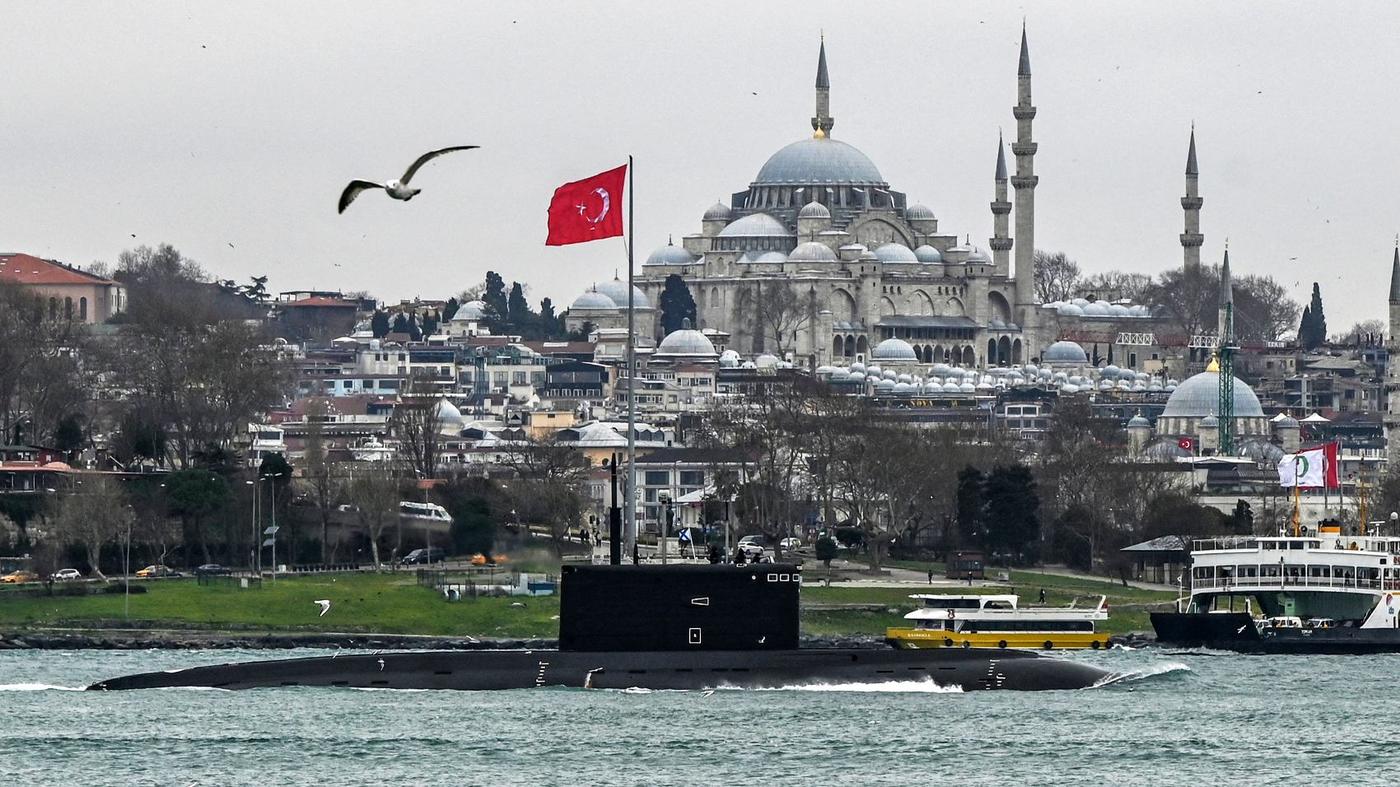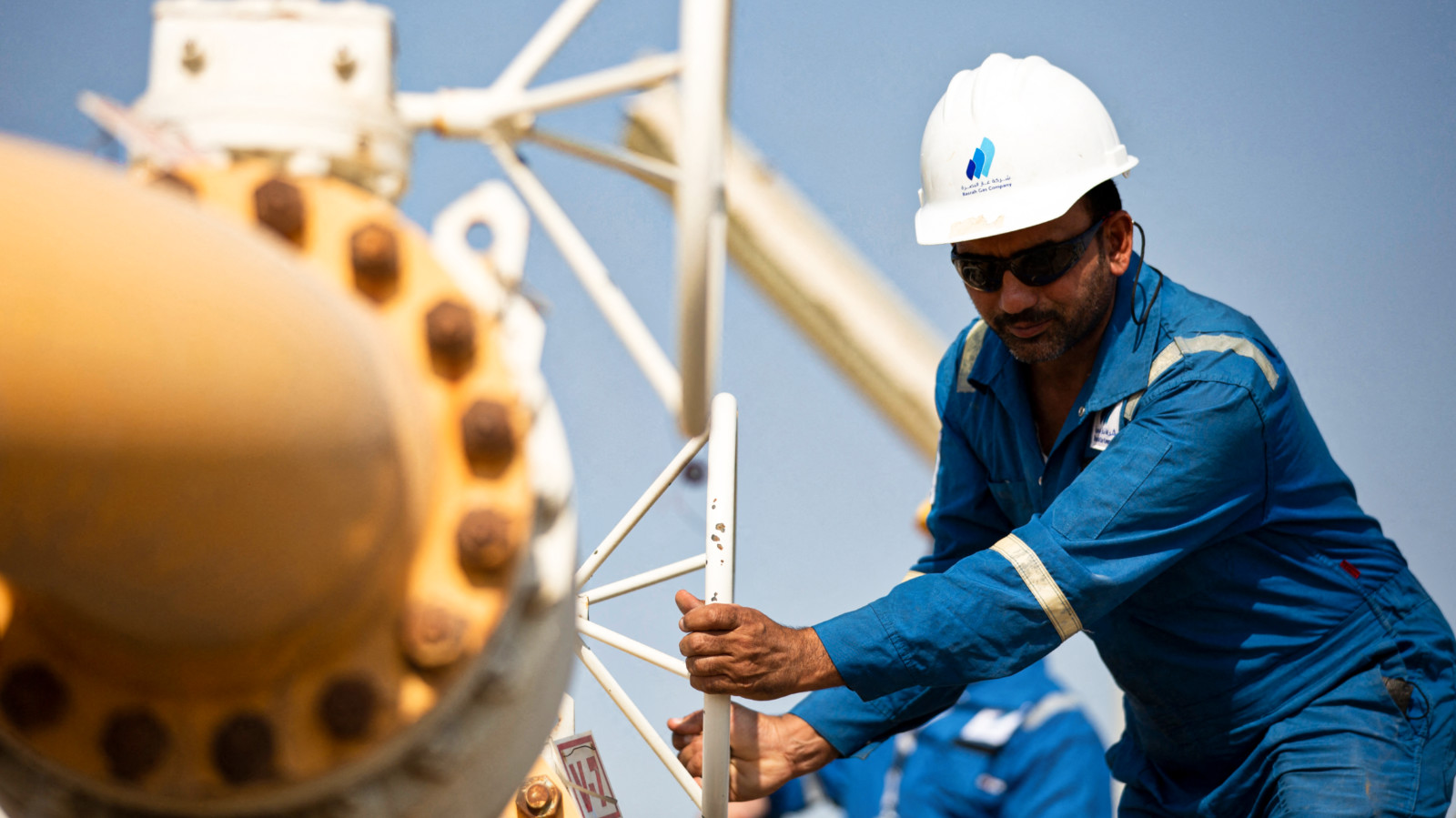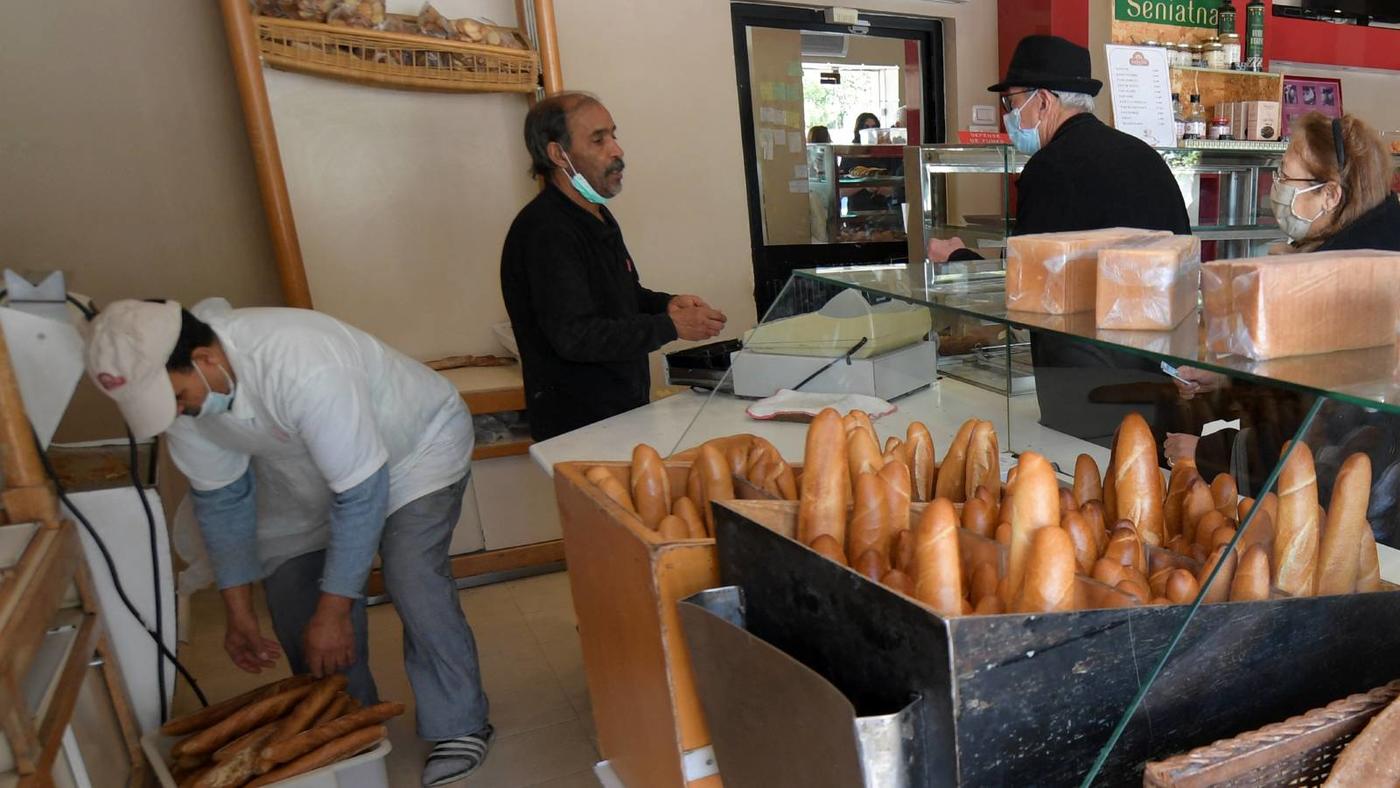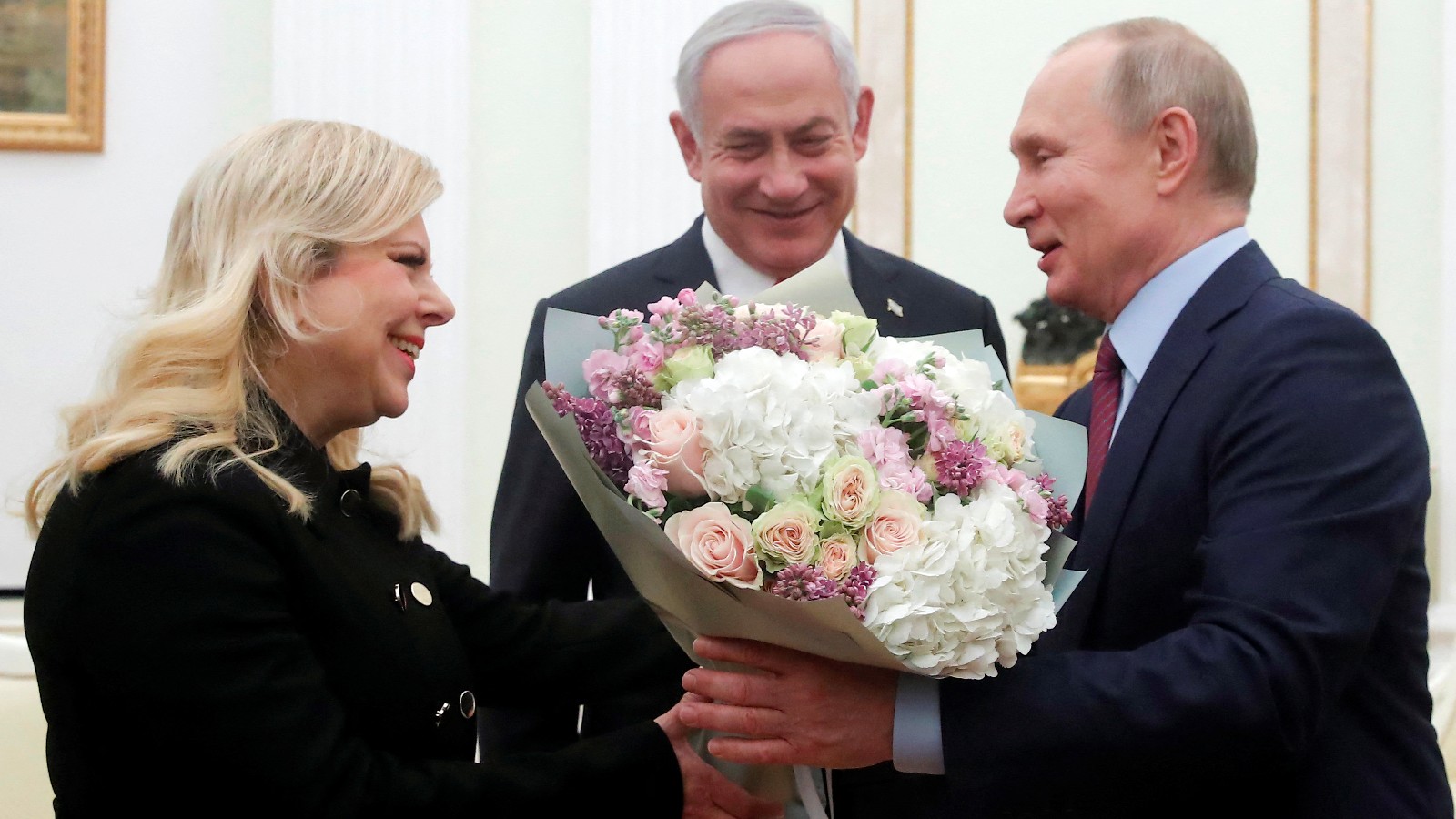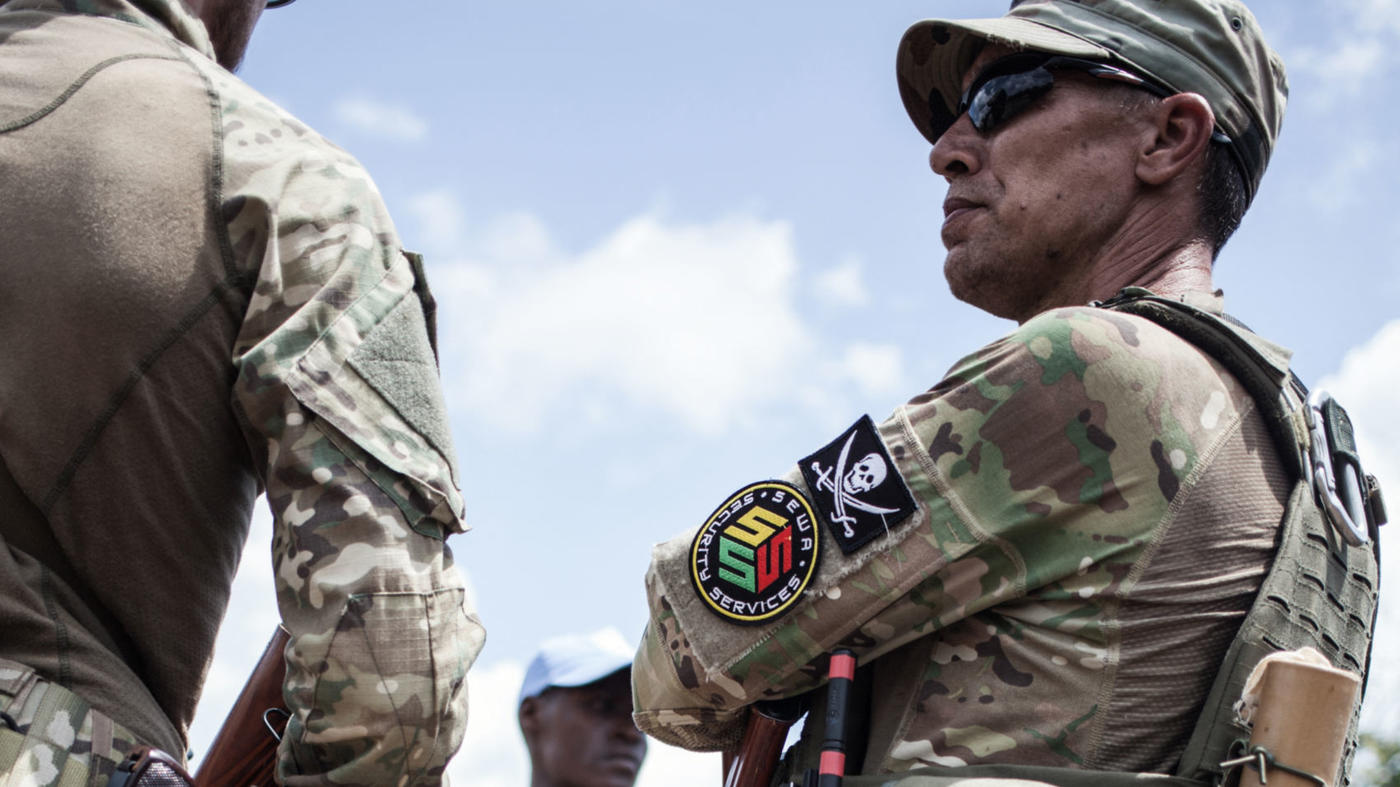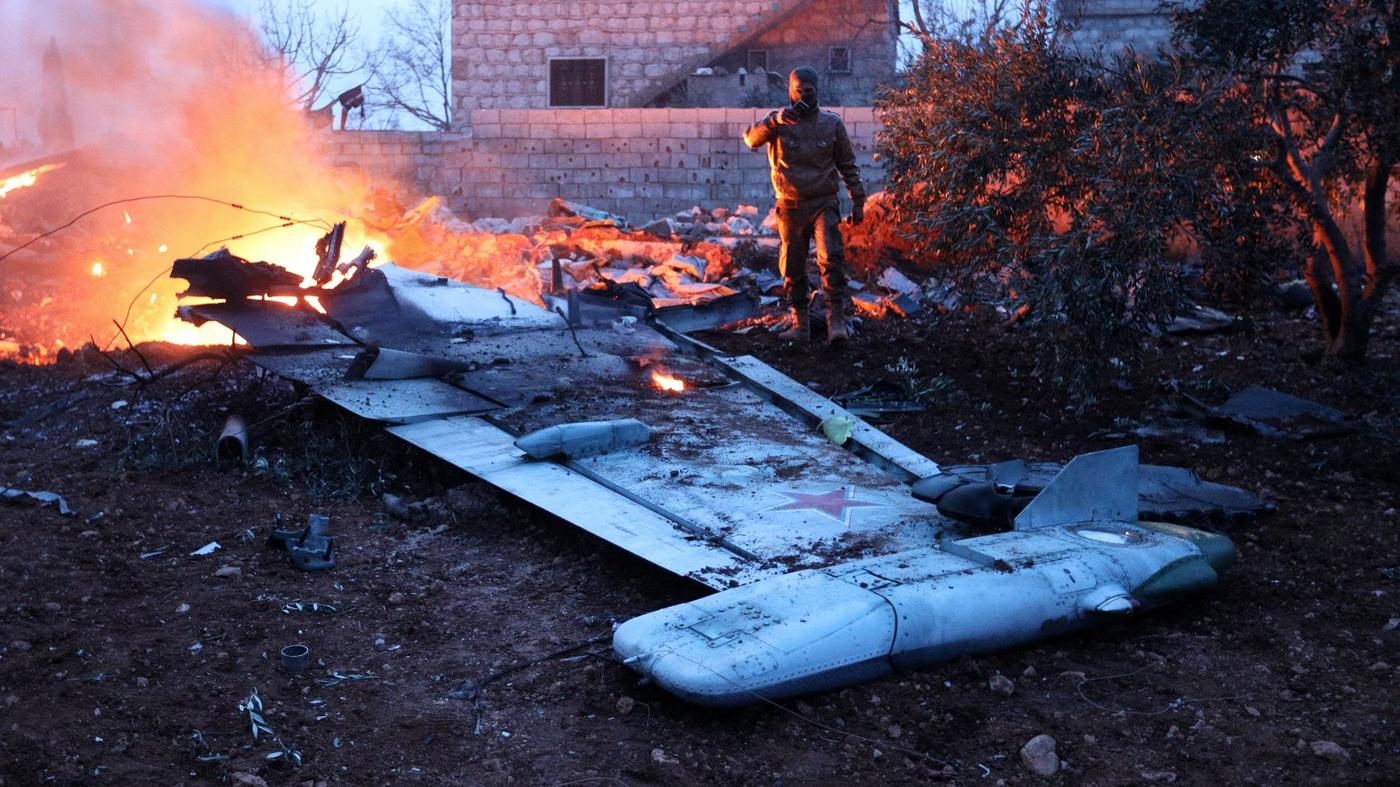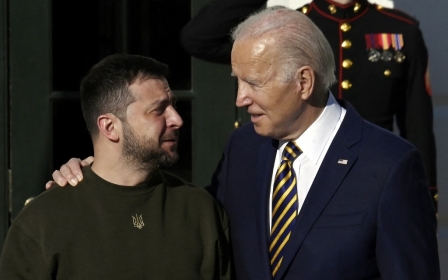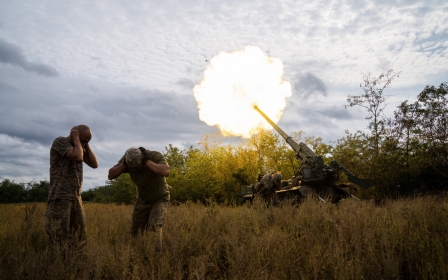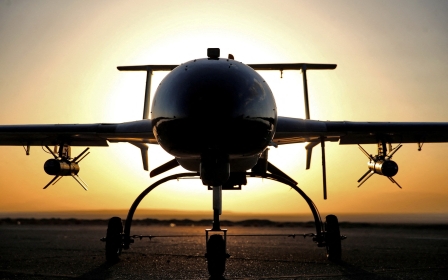Russia-Ukraine war: Seven ways it shaped the Middle East and North Africa
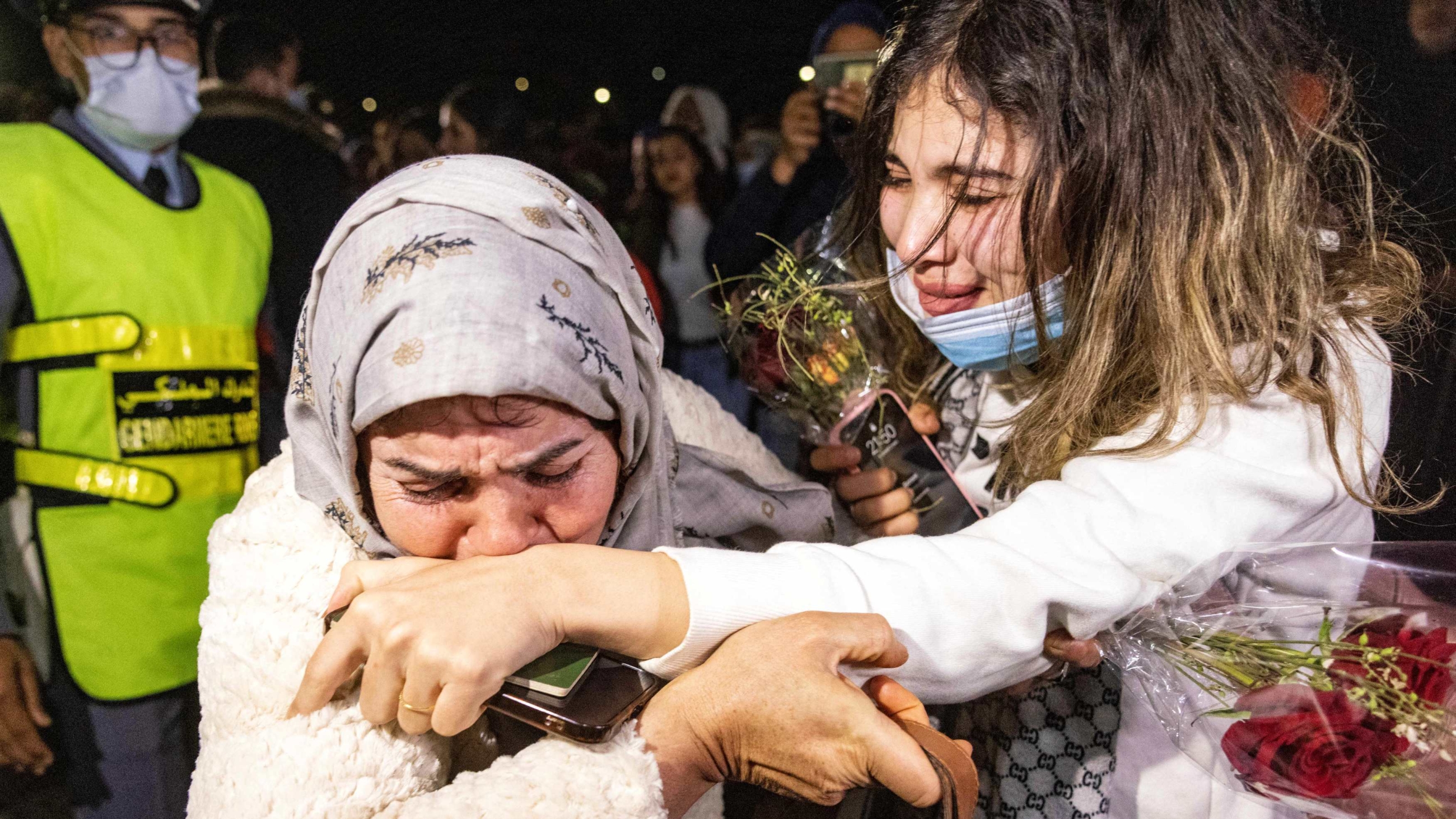
From the Russian invasion of Ukraine 12 months ago emerged the largest conflict in Europe since the end of World War Two.
It has cast a shadow beyond the continent, not least in the Middle East and North Africa.
In the early hours of 24 February 2022, Moscow's military made speedy advances across the former Soviet state. The expectation was that Kyiv would fall within weeks, if not days.
That didn't happen. Instead, Ukrainian forces under Volodymyr Zelenskyy mounted a counter-attack, emboldened by varying degrees of support from Europe and the US.
Twelve months later the conflict feels no closer to resolution, but much has changed for some of the key players beyond the two warring sides.
There have also been the highs and lows of the energy markets, which have resulted in fresh partnerships between the Gulf states and parts of Europe - as well as record profits.
Egypt, Tunisia, and Lebanon have struggled to cope with shortages of wheat imports as the war hindered grain shipments from leaving Ukrainian ports for almost six months.
Meanwhile, Israel, Turkey, and the United Arab Emirates, have all attempted to broker peace in eastern Europe without success.
Here are seven ways in which the conflict has reshaped the Middle East.
1. Turkey takes a diplomatic lead
Turkey, which shares a Black Sea coastline with Ukraine and Russia, has attempted to remain neutral during the war - and for good reason.
Throughout history, Moscow and Istanbul, under the Ottomans, have fought to dominate one of the most important waterways in the world.
Russia has always sought more control over the Turkish Bosporus, which allows access to warm-water ports and a safe route to the Mediterranean.
For Turkish President Recep Tayyip Erdogan, the war has been a balancing act: he did not visit Ukraine until August 2022, six months after the conflict began and long after the leaders of the UK (Boris Johnson) and France (Emmanuel Macron).
While there, his support was more guarded, and he urged peace rather than offering unconditional support for Zelensky.
Turkey condemned the Russian invasion of Ukraine - yet refused to join western sanctions - but still armed Kyiv with sophisticated weapons even before Ukraine's western allies, including armed drones and other equipment.
Meanwhile, it has also occasionally stood firm against Moscow by closing the straights to the Black Sea to Russian war vessels in March.
A Turkish source explained to Middle East Eye the fine line that Ankara needed to follow: "We have to maintain our balance; we don’t want to appear very close to Russia."
At the same time, Ankara has also tried to leverage the crisis for its own ends. It has opposed Sweden's application to join Nato due to Stockholm's refusal to extradite dozens of suspects with links to outlawed Kurdish militant groups.
Throughout the conflict, Turkey has offered refuge to all sides, from Russian billionaires seeking sanctuary from sanctions to tech workers fleeing Vladimir Putin's draft, and Ukrainians fleeing the destruction at home.
Read: Ukraine conflict: Why it really matters to Turkey
Read: How Turkey can play a major role in solutions for Europe's energy crisis
2. Gulf states profit from energy
Certain financial markets traditionally benefit from conflict, including arms, gold, and, notably for the Gulf states, energy.
Less than a month into the Russian invasion, oil prices reached $140 per barrel - the highest since the global recession of 2008 - as western countries spearheaded by the US imposed sanctions on Russian energy companies.
By August 2022, Saudi Arabia oil giant Aramco unveiled record profits of $48.4bn for the second quarter of 2022, although the kingdom's revenues fell later in the year due to a weakened global economy and widespread inflation.
But tension simmered between Washington and Riyadh amid hints that the Opec+ group of oil-producing countries would slash production, putting pressure on domestic markets and boosting revenues for Russia.
The kingdom said it was necessary to spur investment in fossil fuels and support prices amid fears of a slumping global economy.
Throughout 2022, European countries looked to Gulf states, mainly Saudi Arabia and Qatar, to fill their shortfalls in gas and oil.
In November, Qatar and Germany signed a 15-year gas supply, the Gulf state's biggest yet with the EU powerhouse, despite German criticism of Doha's human and LGBTQ+ rights record ahead of the World Cup.
In Europe, fears that the fuel crisis might see power cuts during the winter lessened due to pre-emptive measures and mild seasonal weather - although that did not prevent spiralling bills from hitting businesses and citizens.
But while some Gulf states used the conflict to shore up their coffers, people in the Middle East still felt the increased energy prices.
Amer Shobaki, a Jordanian energy expert, told MEE that the Gulf countries, along with Algeria, Libya, and Sudan, would benefit, while the likes of Jordan, Tunisia, and Lebanon would feel the pain.
Read: Energy prices: Will Saudi Arabia, UAE and Qatar answer West’s calls for relief?
Read: Middle East primed to pounce when EU bans Russian diesel
3. The wheat crisis in Lebanon, Tunisia, and Egypt
Ukraine's fertile chernozem soil allows the country to produce large quantities of wheat and other grains. The Middle East is highly dependent on its exports. Russia is another major exporter of food to the region.
North Africa contains the world's largest wheat importers: Egypt, Algeria, Tunisia, and Libya produce less than half the amount of grains - especially wheat - that their people consume.
Prices are regularly subsidised by the government, so shortages pressure public finances.
The conflict's early months saw no grain ships sail from Ukraine, forcing dependent governments to turn to emergency measures.
In Egypt, an estimated 72m citizens - out of a population of 102m - are enrolled in the country’s national food rationing system.
By early March 2022, Egyptian authorities had turned to reserves and introduced measures to incentivise growers to sell more wheat to the state. They raised prices, set quotas, and threatened farmers with prison if they did not deliver.
Food insecurity has deepened Egypt's wider economic crisis, which has seen the repeated devaluation of the Egyptian pound.
The International Monetary Fund approved a bailout with Cairo in February 2023, the third deal since President Abdel Fattah el-Sisi came to power in a 2013 military coup.
In Tunisian supermarkets, shelves were empty for several weeks in spring 2022 ahead of Ramadan, with flour, rice, semolina, sugar, and eggs almost impossible to find.
Since December 2019, due to its inherent lack of financial stability, the Tunisian government has been forced to pay cash for each import and no longer has the right to import on credit.
With funds depleted and imports from Ukraine frozen, any goods were held offshore pending payment.
The wheat shortage in Lebanon has forced people to wait for hours outside of bakeries for subsidised bread, with brawls breaking out among frustrated citizens.
Russia and Ukraine accounted for over 70 percent of wheat imports before the war.
Food inflation hit triple-digits, fluctuating between a 200 percent increase, up to almost 300 percent during 2022 and early 2023, meaning many Lebanese people struggled to put meals on the table.
Relief came in August 2022, as grain ships finally began to leave Ukraine and sail out of the Black Sea, following a safe passage agreement between Moscow and Kyiv that was brokered in July by Turkey and the United Nations.
The first vessel, the Sierra Leone-flagged cargo vessel Razoni, intended to head for Tripoli, Lebanon, along the Bosporus Strait, after being officially inspected.
However, according to Ukraine's embassy in Beirut, the Lebanon-based buyer refused to purchase the cargo, citing quality concerns due to the five-month delay in its shipment.
The cargo was eventually sold in Turkey, a Turkish shipping agent told MEE, and subsequent shipments did not face the same issues.
Read: Why Ukrainian grain is not going to countries with a food crisis
4. Drones: Iran and Turkey dominate the skies
Combat drones have played a significant role in the Russian war on Ukraine, with both countries using them to stop, and strike, enemy troops.
Turkey and Iran have emerged as the two key arms exporters, providing steady supplies of moderately priced and effective aerial weaponry.
Iranian forces have trained Russia to use the Shahid-136 suicide drone against Ukrainian targets. Kyiv said the Iranian instructors were based in the Black Sea village of Zalizniy Port, Hladivtsi, in the Kherson region, and in Dzhankoi in occupied and annexed Crimea.
Tehran has denied supplying drones to Russia, but according to the US-based Institute for the Study of War, Iranian instructors likely affiliated with elite units of the IRGC are on the ground.
In addition, Iran plans to send Russia Fateh-110 and Zolfaghar missiles to help war efforts, the Washington Post reported citing US and "allied security officials".
Meanwhile, Ukraine's military forces have used Turkey's Bayraktar TB-2s to halt Russian advances.
TB2s have a proven track record of success against several adversaries in conflicts in Libya, Syria, and Nagorno-Karabakh, yet they had never faced an army with sophisticated electronic warfare capabilities and state-of-the-art air defence systems until the Russian invasion.
Their success has seen Ankara find customers from the UAE, Kuwaiti, and Romanian governments, among others.
Turkey and Iran's drones also gained fame in the war. Ukrainians even composed a popular song about Bayraktar TB-2 drones to symbolise resistance to Putin's invasion.
Richard Giragosian, director of the Regional Studies Center (RSC), told MEE that Iran and Turkey's drones mark a shift in arms export from Western countries to the Middle East, hinting that these drones remain "the weapons of the poorly trained forces: anyone can use them - they don't require training or education".
Read: Middle East turns arms exporter as combat drones take flight in Europe
Read: Russia-Ukraine war: The rise of Iran's drone industry
5. Israel walks a tightrope
Few countries have found themselves in a more ambiguous position after the Russian invasion of Ukraine than Israel.
"Ukraine is a significant economic partner for Israel, both in the agricultural and tech sectors, and it is also home to tens of thousands of Jews," wrote Fatih Semsettin Isik and Mustafa Fatih Yavuz for MEE. "It has also indicated a willingness to recognise Jerusalem as Israel’s capital, despite the fact that the city has an occupied status according to the UN."
But Russia is seen as vital for Israel's security along its border with Syria, with Moscow stationing troops in the country since 2015 in support of the government of President Bashar al-Assad.
If Israel sided with Ukraine, then Russia could retaliate in Syria by limiting Israeli air strikes against Iranian-linked foes.
Ukraine has asked for Israel's renowned Iron Dome air defence systems, yet Israeli officials warned of provoking Russia by sending arms as Germany, France, the US, and the UK have also done.
In the spring of 2022, then-prime minister Naftali Bennet attempted to present Israel as a peace broker, mediating between Kyiv and Moscow - but to no avail.
Benjamin Netanyahu, who was elected to his sixth term as prime minister in November 2022, has likewise stayed broadly neutral, although he has previously made much of his cordial relationship with Putin, and was welcomed at the Kremlin less than a month before the invasion.
In May 2022, Moscow accused Israel of sending mercenaries to Ukraine, just days after Russia's foreign minister Sergei Lavrov compared Ukraine's Jewish president Volodymyr Zelensky to Adolf Hitler, saying they both "had Jewish blood". And in October, Zelensky blamed Israel's neutrality for Iran's alliance with Moscow.
Ukraine has urged the US to push Israel to back Kyiv, saying that "the Americans are the only country that Israel is listening to".
So far, the administration of US President Joe Biden has demurred in putting pressure on Netanyahu, certainly when compared to that placed on Riyadh as regards oil production.
In January, Washington sent US arms stored in Israel to Ukraine - but Israel still has to contribute weapons of its own.
Read: Why Israel gets no US pushback for staying neutral on Russia-Ukraine
6. Wagner Group: Syrian mercenaries and African gold
The Wagner Group, Russia’s state-backed private military network of mercenaries, has a notorious record across much of the Middle East and Africa during the past decade, including Libya, from where MEE has reported on its atrocities.
Western officials regard the group as part of Putin's bid to spread influence in countries such as the Central African Republic (CAR) and Sudan, where it can secure valuable gold mining concessions that can help Moscow evade financial sanctions.
The Wagner Group has also used Syrian fighters to control gold mines and push Russian interests: eyewitnesses told MEE that Syrian mercenaries had been among the Wagner fighters who launched a series of attacks that started at a gold mine in the CAR in March, killing 100 miners from Sudan, Chad, Niger, and CAR.
In June 2022, Sudan’s military leader General Abdel Fattah al-Burhan denied the presence of Russian mercenaries in the country.
Russian Foreign Minister Sergei Lavrov defended the group during a visit in February 2023.
After years of denying its existence, Moscow officially recognised the "foundation" of Wagner Group in September 2022, which is led by business entrepreneur Yevgeny Prigozhin, who enjoys close links to Putin.
Prigozhin founded the group in 2014 and likened it to Robin Hood, calling its acts "heroic".
Read: Syrian fighters participated in Wagner Group massacres in Central African Republic
Read: Russia's Wagner Group 'getting rich in Sudan' from gold mines and government
7. International fighters in Ukraine
The Ukraine war became global soon after it began and drew fighters from across the globe.
The Ukrainian authorities established the International Legion of Territorial Defence of Ukraine in the early days of the war.
They lifted visas for volunteers who would like to fight the Russian invasion. Almost 20,000 people answered Kyiv's call to arms in March.
Unlike Russia's Wagner Group, Ukraine's International Legion has been portrayed as a cluster of resistance fighters against Russian occupation. Some have previously fought in conflicts like Syria, but others were from Muslim countries, which private companies hired for extraction, evacuation, and defence purposes.
Some foreign fighters who fought the Islamic State group travelled to fight the Russians in Kyiv.
Aiden Aslin, a British citizen, who headed for Syria in 2015, had been fighting the Islamic State with Kurdish fighters in the People's Protection Units (YPG) for two years.
After that, he travelled to Ukraine in 2018, where he settled down. He took up arms again after the invasion but was captured in April 2022. In September, he was freed after a major prison swap involving nearly 300 people brokered by Turkey and Saudi Arabia.
Read: Russia-Ukraine war: How invasion is attracting mercenaries - not just foreign volunteers
Read: Russia-Ukraine war: The westerners who went from fighting Islamic State to aiding Kyiv
The content of this article was drawn from extensive reporting by Middle East Eye team in Turkey, US, Syria and London. Please visit our Russia-Ukraine War section for more content.
Middle East Eye propose une couverture et une analyse indépendantes et incomparables du Moyen-Orient, de l’Afrique du Nord et d’autres régions du monde. Pour en savoir plus sur la reprise de ce contenu et les frais qui s’appliquent, veuillez remplir ce formulaire [en anglais]. Pour en savoir plus sur MEE, cliquez ici [en anglais].



